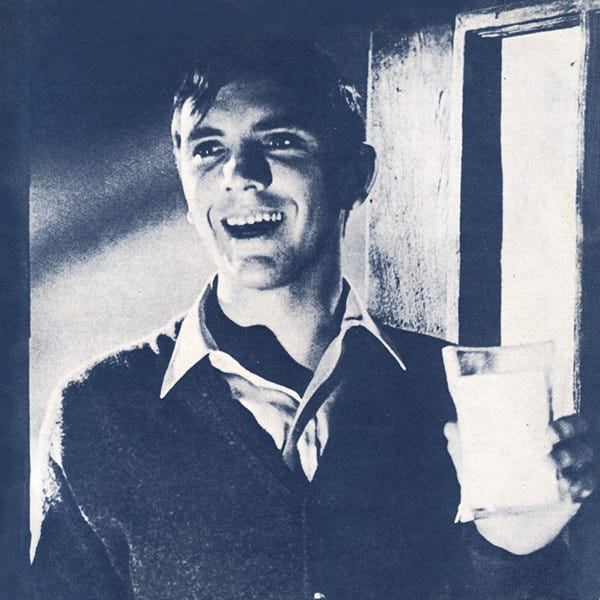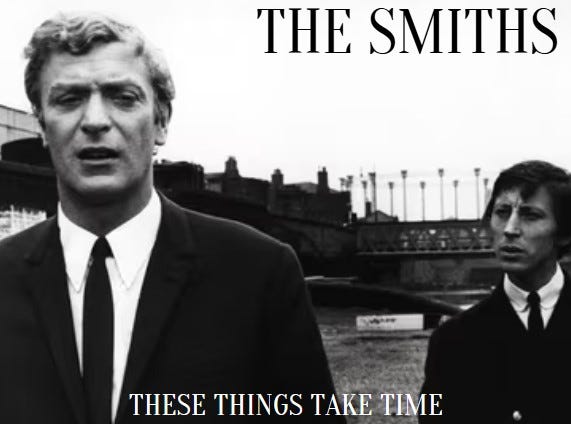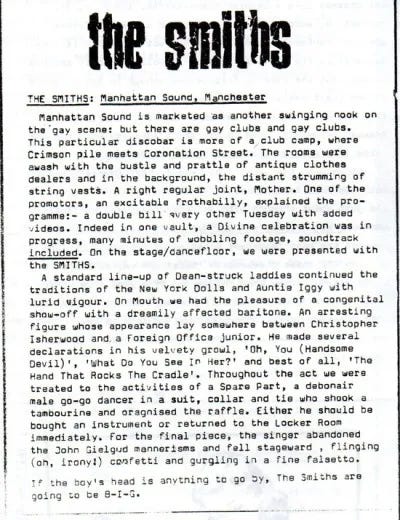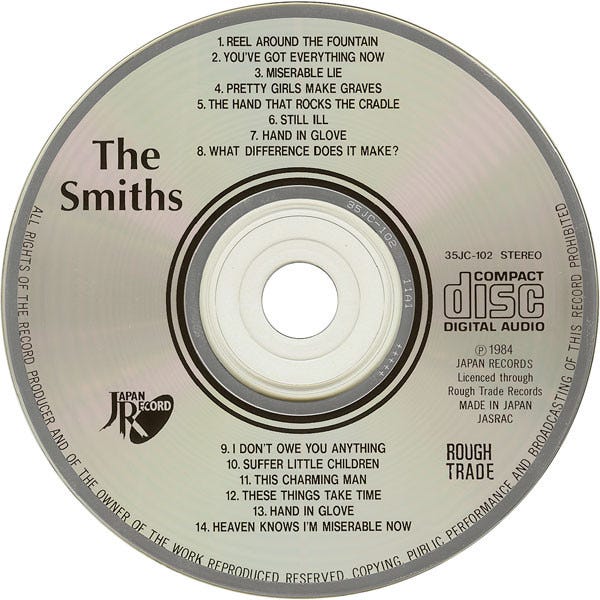‘These Things Take Time’ is among the very first songs composed by Morrissey and Marr; most likely in the summer or perhaps the autumn of 1982. The song took form in the course of rehearsal sessions at Spirit Studios in Manchester as well as a rehearsal room upstairs from a retail shop called Crazy Face Clothing1 in late 1982. Initially, the song had slightly different lyrics2 and a distinctive drum roll intro.
An early version of the song (and others) was recorded on a cassette tape (known as the "Pablo Cuckoo Tape") during the course of a rehearsal above Crazy Face Clothing, which was subsequently given to producer Troy Tate in order to afford him a sample of what he would be working on before going into the studio with the band.
The Smiths introduced ‘These Things Take Time’ at their second concert at a gay club in Manchester called Manhattan Sound on January 3, 1983, going on to perform it at least 46 more times in concert (perhaps more in consideration of the fact that the playlists from several of the bands early concerts were not archived).
In late June of 1983 the Smiths professionally recorded the song for their first appearance for David Jensen's3 (through whom the Smiths were introduced to producer John Porter) BBC radio program, which was broadcast on July 4, 1983. This recording was produced by Dale Griffin, with the lyrics updated and the drum roll intro removed. Listen to the David Jensen version here:
The Smiths began recording sessions with producer Troy Tate for their debut album in mid-summer 1983 at London’s Elephant Studios. While ‘These Things Take Time’ was not ultimately included on their eponymous album (bar one region), it was recorded in the course of these sessions (as well as the subsequent album sessions with John Porter). Interestingly, the drum roll intro was brought back for the Tate version of the song. Listen to the Troy Tate version here:
Upon hearing Tate’s finished work, Morrissey didn't like it. The other members of the Smiths weren't entirely happy with the results either. As later explained by Johnny Marr:
"I could hear myself that the mixes sounded underproduced and were not the finished article that we needed as our introduction to the world,”4
According to Morrissey, it was Marr who suggested that they enlist producer John Porter to re-work the tracks:
“…Johnny thought him [Porter] a logical choice to produce the album. I agreed.”5
The definitive version of the song (sans drum intro) was recorded in mid-October 1983 at Pluto Studios in Manchester with Porter as producer. Listen to the Porter version with its robust sound here:
The Porter version of the song appears on the B-side of the 12-inch format of the Smiths’ third single, ‘What Difference Does It Make?’, which was released on January 16, 1984.

‘These Things Take Time’ was included on the CD format of The Smiths in Japan, being released there in September 1984.
The David Jensen BBC program version of the track was included on the Hatful of Hollow compilation album (November 1984), while the Porter version appears on 1987s Louder Than Bombs compilation album. The Porter version also appears on 2008s The Sound Of The Smiths and 2009s The Smiths Singles Box compilation albums. The David Jensen BBC program version of the song makes a final appearance on 2011s Complete compilation album.
Echoing the opening line of ‘The Battle Hymn of the Republic’ (“Mine eyes have seen the glory of the coming of the Lord”), Morrissey describes seeing the “glory” of a miracle child (a “wunderkind”), with whom he has a clandestine encounter (“You took me behind a dis-used railway line…you gave me something that I won’t forget too soon”).
It becomes readily apparent that the lyrics of ‘These Things Take Time’ are flavored by a thinly-veiled homoerotic slant - one example of this is the discernable emphasis placed upon certain words in Morrissey’s vocals - as well as the surreptitious nature of the protagonist’s physical intimacy (this theme emerges again in 1985s ‘I Want The One I Can’t Have’ in which Morrissey sings “…if you ever need self-validation just meet me in the alley by the railway-station”).
The underlying theme of the song is the confused and transient nature of
Keep reading with a 7-day free trial
Subscribe to Morrissey, Ringleader of The Tormentors to keep reading this post and get 7 days of free access to the full post archives.






